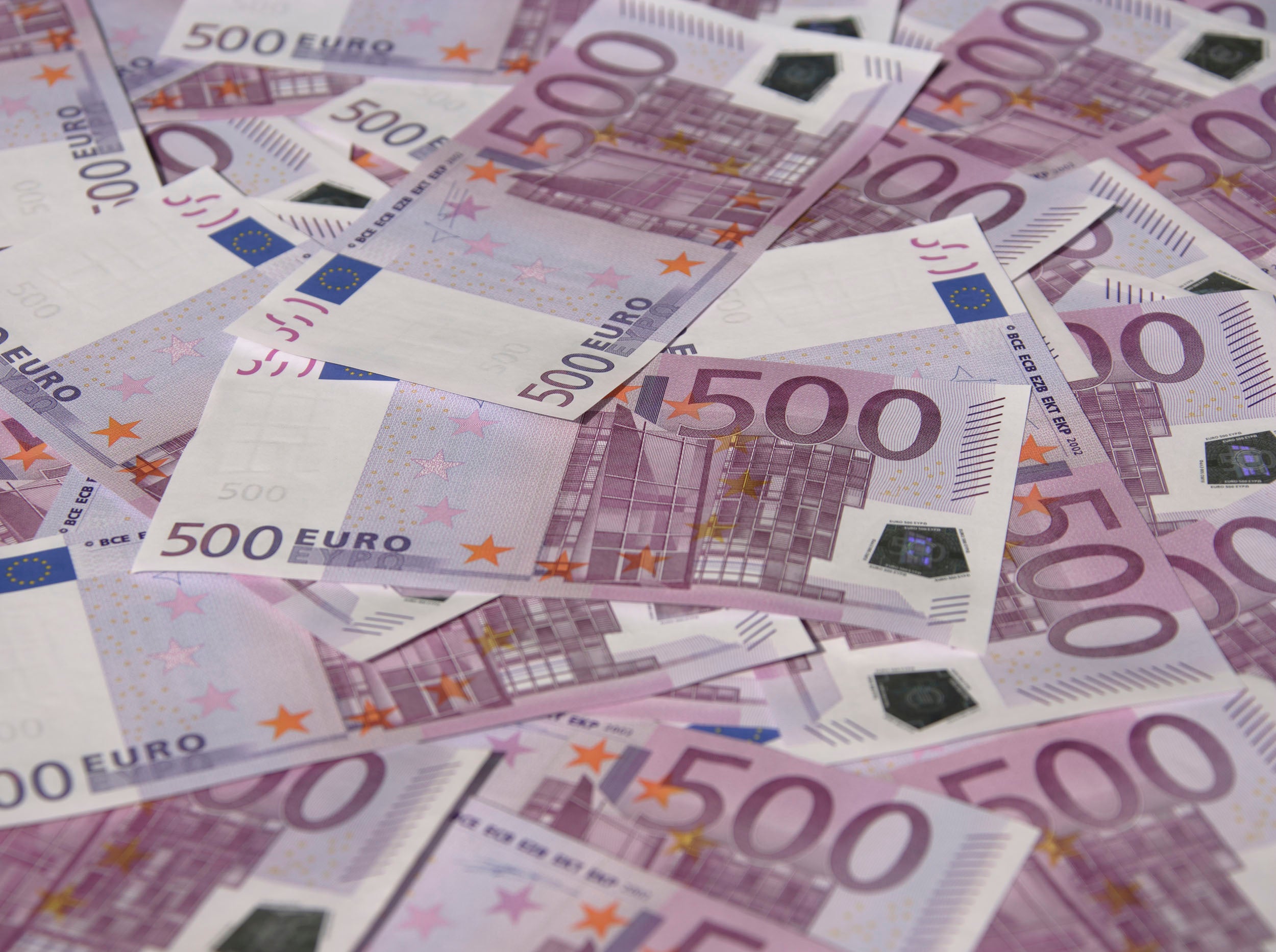500 euro 'Bin Laden banknote' removed from circulation by ECB
Note commonly used by criminals and terrorists to smuggle cash through Europe

Your support helps us to tell the story
From reproductive rights to climate change to Big Tech, The Independent is on the ground when the story is developing. Whether it's investigating the financials of Elon Musk's pro-Trump PAC or producing our latest documentary, 'The A Word', which shines a light on the American women fighting for reproductive rights, we know how important it is to parse out the facts from the messaging.
At such a critical moment in US history, we need reporters on the ground. Your donation allows us to keep sending journalists to speak to both sides of the story.
The Independent is trusted by Americans across the entire political spectrum. And unlike many other quality news outlets, we choose not to lock Americans out of our reporting and analysis with paywalls. We believe quality journalism should be available to everyone, paid for by those who can afford it.
Your support makes all the difference.The infamous €500 note, long associated with money laundering and tax evasion, is to be phased out by the European Central Bank.
The ECB decided to permanently stop producing the so-called “Bin Laden banknote” at a meeting in Frankfurt.
It had acquired its distinctive nickname in Spain partly because it is favoured by criminals and terrorists for cash smuggling, and partly on the basis everyone knows what it looks like but few people have ever seen it.
The large, violet bills are the most valuable Euro notes and also physically bigger than the others.
A statement issued by the ECB said the note would no longer be issued from 2018, when €200 and €100 notes would be introduced.
"In view of the international role of the euro and the widespread trust in its banknotes, the €500 will remain legal tender and can therefore continue to be used as a means of payment and store of valueThe Eurosystem, which comprises the ECB and the euro area national central banks, will take steps to ensure that the remaining denominations are available in sufficient quantities," the statement said.
"The €500 banknote, like the other denominations of euro banknotes, will always retain its value and can be exchanged at the national central banks of the Eurosystem for an unlimited period of time."
In February, a study by the EU Commission concluded “the use of high denomination notes, in particular the €500 note, was a problem for law enforcement authorities".
“These notes are in high demand among criminal elements due to their high value and low volume," the study said.
The ECB says €500 bills account for 28% of the value of banknotes in circulation, but only 3% of the total number of notes.
In March, French finance minister Michel Sapin reportedly said of the unpopular note: “They are used more for hiding things than buying them.
“It is used more to facilitate transactions which are not honest than to allow you and me to buy food to eat.”
One aspect of French intelligence’s reaction to the Paris attacks in November last year has been a concerted crackdown on terrorist financing.
However, the prospect of losing the bill has not been greeted so readily in Germany, where an estimated 80% of transactions are still carried out in cash.
The issue of whether removing the banknote will aid the fight against organised crime is also in doubt, with more gangs using illegal online bank accounts to transfer funds.
The cost of removing the note from circulation was also a factor under consideration, with some experts putting the figure as high as €600 million to make the transition.
Join our commenting forum
Join thought-provoking conversations, follow other Independent readers and see their replies
Comments